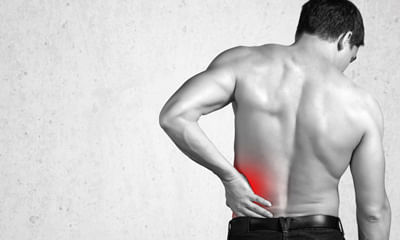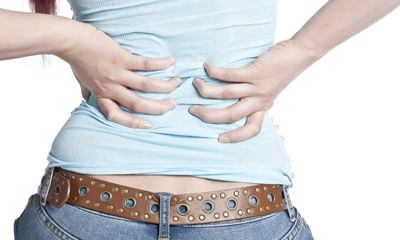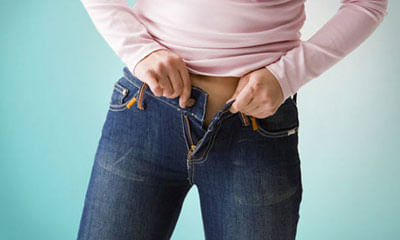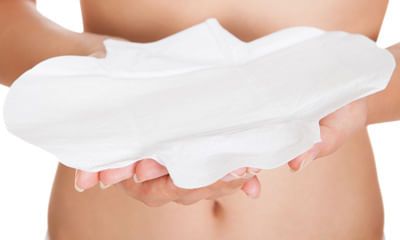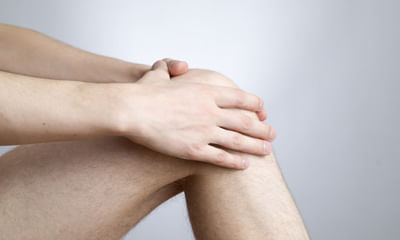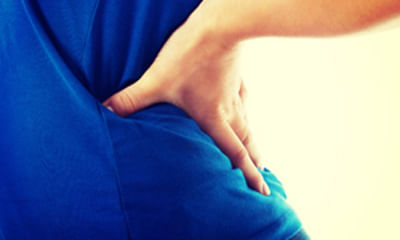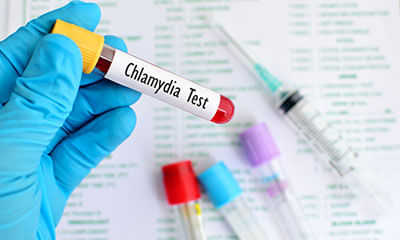Burning Sensation In Lower Abdomen
I have pain in lower back, butt, legs and feet. And also burning sensation in the legs and feet. And I am not able to wa ...
Ask Free Question
If you are suffering from burning pain or tingling sensation in hands or feet; sharp shooting pain in legs; numbness in hands or feet, then you might be suffering from neuropathic pain. What is a neuropathic pain? Neuropathic pain is a special type of pain which occurs when there is damage to nerve fibres, which produces tingling or burning type of pain. It is of two types: 1. Peripheral neuropathic pain: it occurs when there is an injury to peripheral nerve fibres (a-delta or c-fibers) which carries pain sensation to the brain (thalamus) for interpretation. 2. Central neuropathic pain: it occurs due to sensitization of central pain interpreting mechanisms (thalamus) to falsely feel pain when peripheral nerve fibres are no longer sending pain impulses to them. Worldwide-estimates of the prevalence of neuropathic pain is 7% i.e. 7 persons out of 100 people are suffering from different types of neuropathic pain. Symptoms: •tingling sensation or feeling of ants crawling under skin •burning sensation •sharp shooting pain or electric current-like sensation •stabbing pain •dull pain with numbness or heaviness reasons for neuropathic pain: •diabetes mellitus: most common cause worldwide due to uncontrolled blood sugar levels, causing damage to nerve fibres. •alcohol consumption/cigarette smoking: damage to nerve fibres or damage to blood vessels supplying nerve fibres. Burning pain in feet •neck pain/low back pain/glutei pain •vit. B12 deficiency •chemotherapy for cancer patients •post-herpes virus infection •post-spine surgery •post-amputation •diseases like spinal cord injury, multiple sclerosis, hiv, lead toxicity, etc. Special neuropathies: 1. Carpal tunnel syndrome: tingling, burning sensation in hand which occurs due to compression of median nerve in the wrist area. It occurs in women especially due to pregnancy, hypothyroidism, diabetes, etc. And in men due to improper position of the wrist during working on computers. 2. Cervical radiculopathy: pain in neck and shoulder region (which increases with neck movements), along with sharpshooting pain radiating from neck to hand occurs in cases of cervical radiculopathy. This is due to compression of the cervical nerve root by disc prolapse, facet subluxation, muscle spasm, trauma, etc. 3. Lumbar radiculopathy: pain in lower back or glutei region with sharp shooting pain radiating from hip to leg/foot region, occurs in cases of lumbar radiculopathy or sciatica. This is due to compression of lumbar nerve root or sciatic nerve by disc prolapse, facet joint, trauma, hypertrophied ligamentumflavum, piriformis syndrome, etc. 4. Meralgiaparesthetica: tingling or burning sensation in front of the thigh, occurs due to compression of lateral cutaneous nerve of thigh, near waist region. Usual causes are tight or constrictive clothing at waist region, prolonged sitting, protuberant abdomen, etc. Prevention of neuropathy: 1. Avoid alcohol consumption and cigarette smoking. 2. Maintain ideal body weight/bmi (body mass index) 3. Lifestyle changes: daily exercises (>30 minutes per day) or brisk walking or swimming; avoid prolonged sitting or standing (>30 minutes). 4. Food/diet should have following components: •green vegetables e.g. Spinach, fenugreek leaves (methi), radish, etc •coloured vegetables e.g. Tomato, carrot, capsicum (green/red), ladies-finger (bhindi) •milk products e.g. Milk, buttermilk, curd, cheese (paneer) •protein-rich foods e.g. Fish, egg, chicken, pulses (daal) •fibre-rich foods e.g. Bran, oats, brown-rice •fruits e.g. Apple, orange, guava, papaya, pomegranate, berries 5. Blood sugar control (in diabetics) 6. Care of feet: •regular inspection of feet (with mirror) •comfortable, well-fitted shoes •regular consultation with a podiatrist •treatment of wounds, foot deformities 7. Adequate sleep 8. Warm water bath (increases blood flow to the affected area) treatment: •consult pain medicine specialist. •neuropathic painkillers e.g. Amitriptyline, pregabalin, gabapentin, capsaicin, duloxetine, etc. •vit. B12 supplements, anti-oxidants, multi-vitamins. •transcutaneous electrical nerve stimulation (tens) •acupuncture •relaxation and yoga •neural prolotherapy.
Hello sir ,i am vilika swu ,22 years old ,i was having pain in the back from long time n wen I went for ultrasound I had ...
Ask Free Question
You need to diagnose whether the back pain is originally due to back issues or it is due to kidney issues. Kidney pain vs. Back pain because your kidneys are located toward your back and= underneath your ribcage, it may be hard to tell if the pain you’re experiencing in that area is coming from your back or your kidney. The symptoms you’re having can help you figure out which is the source of the pain. The location, type, and severity of the pain are some of the things that will be different depending on whether the pain is from a problem in your kidneys or your back. How to identify kidney painkidney pain is most often caused by a kidney infection or a stone in the tubes coming out of your kidney. If the pain is coming from your kidney, it will have these features: where the pain is located kidney pain is felt in your flank, which is the area on either side of your spine between the bottom of your ribcage and your hips. It usually occurs in one side of your body, but it can occur in both sides. Type of pain kidney pain is usually sharp if you have a kidney stone and a dull ache if you have an infection. Most often it will be constant. It won’t get worse with movement or go away by itself without treatment. If you’re passing a kidney stone, the pain may fluctuate as the stone moves. Radiation of the pain sometimes the pain spreads (radiates) to your inner thigh or lower abdomen. Severity of the pain kidney pain is classified according to how bad it is — severe or mild. A kidney stone usually causes severe pain, and the pain from an infection is usually mild. Things that make it better or worse typically, nothing makes the pain better until the problem is corrected, such as by passing the stone. Unlike back pain, it usually won’t change with movement. Accompanying symptoms if you have a kidney infection or a kidney stone, you may also experience: •fever and chills •nausea and vomiting •cloudy or dark urine •an urgent need to urinate •pain when you urinate •a recent infection in your bladder •blood in your urine (this can happen with an infection or kidney stones) •small kidney stones that look like gravel in your urine how to identify back pain back pain is more common than kidney pain and is usually caused by a problem in the muscles, bones, or nerves in your back. Has the following features: where the pain is located back pain can occur anywhere on your back, but it’s most commonly located in your lower back or one of your buttocks. Type of pain muscle pain feels like a dull ache. If a nerve has been injured or irritated, the pain is a sharp burning sensation that may travel down your buttock to your lower leg or even your foot. Muscle pain may affect one or both sides, but nerve pain usually only affects one side. Radiation of the pain nerve pain may spread to your lower leg. Pain from a muscle usually stays in the back. Severity of the pain back pain is described as acute or chronic based on how long you’ve had it. Acute pain lasts days to weeks, subacute pain lasts six weeks to three months, and chronic pain lasts longer than three months. Things that make it better or worse back pain may get worse with movement or if you sit or stand for a long time. It may get better if you switch positions or walk around. Accompanying symptoms other symptoms you may experience with back pain include: •the painful spot looking swollen and feeling tender to the touch •a muscle spasm in the painful area •numbness or weakness in one or both of your legs (if the pain is due to a nerve issue) if you find you have back pain and can’t hold your urine or bowel movements, something is pressing on your spinal nerves, and you should be evaluated immediately. This condition, called caudaequina syndrome, can cause severe long-term damage to your spinal nerves if not treated right away. 6 imbalances that cause pain—and how to fix them "pain is a medical condition and a medical issue, says brett jones, owner of applied strength in pittsburgh who is certified for the functional movement screen, a system of tests and cor rective exercise strategies. "it's a warning sign. The pain is there to tell you something's wrong.
I got usg kub + pv report today and impression is bladder wall is thickened but no focal lesions are detected. Can anybo ...
Ask Free Question
There can be many reasons for thickening of the bladder wall. If you are having symptoms like pain in the lower abdomen, frequent or painful or burning sensation during passing urine it may be due infection the bladder.
Hello doctor, I have burning sensation while passing urine and burning sensation in my urethra even I have urgency of ur ...
Ask Free Question
In the meantime, here are a few general suggestions that may help alleviate your discomfort: stay hydrated: drink plenty of water to help flush out your urinary system and dilute your urine, which may reduce the burning sensation. Avoid irritants: avoid consuming beverages or foods that may irritate your urinary system, such as caffeine, alcohol, spicy foods, and acidic foods. Urinate frequently: emptying your bladder regularly can help reduce the concentration of irritants and bacteria in your urinary tract. Practice good hygiene: make sure to keep your genital area clean and dry to prevent the spread of bacteria. Avoid using harsh soaps or hygiene products that may irritate the urethra. Apply a warm compress: placing a warm compress or taking a warm bath may provide temporary relief for discomfort in your testicles.
I have a problem with my periods, I am 45 years old amd before, after my periods I get pain in my pelvic area ,feel sick ...
Ask Free Question
Hi, Lybrate user, • tk, plenty of water to hydrate yourself ,to eliminate toxins ,nourishing your body ,establishing your normal flow. • go for meditation to reduce your stress, anxiety to calm your nerve easing your stress in order to improve haemoglobin level. • your diet be simple, non- irritant, easily digestible on time to maintain your digestion, avoiding gastric disorder, minimising cramp abdomen •tk, apple,carrots, cheese,milk, banana,papaya, pomegranate, spinach,almonds, walnuts to feel energetic improving haemoglobin level. •consult ,privetly for a faster recovery, till, then take, homoeopathic medicine, underlying: @ pulsatilla 30ch-5 drops ,thrice, orally, daily. •ensure, sound sleep in the night for at least 7 hrs.• avoid, caffiene,junk food, dust,smoke, exertion tk, care,
Actually I had casual sex recently 4 days ago I used a condom and it broken at the last moment. I am feeling a little bu ...
Ask Free Question
Yeah actually need to see the local part for any lesions. Also share your reports if any investigations are done previously.
Hi sir/madam. Last 8 to 10 years, I have burning sensation and pain while passing urine. Even not urine urgently I have ...
Ask Free Question
Hello- a condition known as urethritis occurs when the urethra gets infected and inflamed. Some men can have urethritis and have no symptoms at all. But most men would experience burning pain while urinating, notice discharge from the penis, have the constant urge to urinate, endure itching around the groin area, and have a painful feeling inside the penis and painful ejaculations. There are many causes of urethritis. Irritation by substances, such as creams, lotions, soap and spermicides can cause a type of urethritis that cannot be spread to anyone else. Sexually transmitted diseases, like gonorrhea and chlamydia, can also cause urethritis. These can be spread to sexual partners. Excessive sex or masturbation can also be a cause. The first necessary step is to stop masturbating or significantly reduce it to only once per week. There are many potent herbs known to fight infection that relieve pain and strengthen the urinary system. For example, cranberry remedy with hibiscus contains proanthocyanidins (pacs), a chemical compund that ruins the structure of bactieral fimbriae, which cause utis and bladder infections. By eliminating the bacterial structures, men can combat urethritis symptoms that can damage the penis.
I'm 24 years male. I'm having pain in foot for around an year but have ignored but it was still there. It is kind of bur ...
Ask Free Question
Burning pain or tingling sensation in hands or feet if you are suffering from burning pain or tingling sensation in hands or feet; sharp shooting pain in legs; numbness in hands or feet, then you might be suffering from neuropathic pain what is a neuropathic pain? Neuropathic pain is a special type of pain which occurs when there is damage to nerve fibres, which produces tingling or burning type of pain. It is of two types: 1. Peripheral neuropathic pain: it occurs when there is an injury to peripheral nerve fibres (a-delta or c-fibers) which carries pain sensation to the brain (thalamus) for interpretation. 2. Central neuropathic pain: it occurs due to sensitization of central pain interpreting mechanisms (thalamus) to falsely feel pain when peripheral nerve fibres are no longer sending pain impulses to them. Worldwide-estimates of the prevalence of neuropathic pain is 7% i.e. 7 persons out of 100 people are suffering from different types of neuropathic pain. Symptoms: •tingling sensation or feeling of ants crawling under skin •burning sensation •sharp shooting pain or electric current-like sensation •stabbing pain •dull pain with numbness or heaviness reasons for neuropathic pain: •diabetes mellitus: most common cause worldwide due to uncontrolled blood sugar levels, causing damage to nerve fibres. •alcohol consumption/cigarette smoking: damage to nerve fibres or damage to blood vessels supplying nerve fibres. Burning pain in feet •neck pain/low back pain/glutei pain •vit. B12 deficiency •chemotherapy for cancer patients •post-herpes virus infection •post-spine surgery •post-amputation •diseases like spinal cord injury, multiple sclerosis, hiv, lead toxicity, etc. Special neuropathies: 1. Carpal tunnel syndrome: tingling, burning sensation in hand which occurs due to compression of median nerve in the wrist area. It occurs in women especially due to pregnancy, hypothyroidism, diabetes, etc. And in men due to improper position of the wrist during working on computers. 2. Cervical radiculopathy: pain in neck and shoulder region (which increases with neck movements), along with sharpshooting pain radiating from neck to hand occurs in cases of cervical radiculopathy. This is due to compression of the cervical nerve root by disc prolapse, facet subluxation, muscle spasm, trauma, etc. 3. Lumbar radiculopathy: pain in lower back or glutei region with sharp shooting pain radiating from hip to leg/foot region, occurs in cases of lumbar radiculopathy or sciatica. This is due to compression of lumbar nerve root or sciatic nerve by disc prolapse, facet joint, trauma, hypertrophied ligamentumflavum, piriformis syndrome, etc. 4. Meralgiaparesthetica: tingling or burning sensation in front of the thigh, occurs due to compression of lateral cutaneous nerve of thigh, near waist region. Usual causes are tight or constrictive clothing at waist region, prolonged sitting, protuberant abdomen, etc. Prevention of neuropathy: 1. Avoid alcohol consumption and cigarette smoking. 2. Maintain ideal body weight/bmi (body mass index) 3. Lifestyle changes: daily exercises (>30 minutes per day) or brisk walking or swimming; avoid prolonged sitting or standing (>30 minutes). 4. Food/diet should have following components: •green vegetables e.g. Spinach, fenugreek leaves (methi), radish, etc •coloured vegetables e.g. Tomato, carrot, capsicum (green/red), ladies-finger (bhindi) •milk products e.g. Milk, buttermilk, curd, cheese (paneer) •protein-rich foods e.g. Fish, egg, chicken, pulses (daal) •fibre-rich foods e.g. Bran, oats, brown-rice •fruits e.g. Apple, orange, guava, papaya, pomegranate, berries 5. Blood sugar control (in diabetics) 6. Care of feet: •regular inspection of feet (with mirror) •comfortable, well-fitted shoes •regular consultation with a podiatrist •treatment of wounds, foot deformities 7. Adequate sleep 8. Warm water bath (increases blood flow to the affected area) treatment: •consult pain medicine specialist. •neuropathic painkillers e.g. Amitriptyline, pregabalin, gabapentin, capsaicin, duloxetine, etc. •vit. B12 supplements, anti-oxidants, multi-vitamins. •transcutaneous electrical nerve stimulation (tens) •acupuncture •relaxation and yoga •neural prolotherapy.
I'm 24 years male. I'm having pain in foot for around an year but have ignored but it was still there. It is kind of bur ...
Ask Free Question
Burning pain or tingling sensation in hands or feet if you are suffering from burning pain or tingling sensation in hands or feet; sharp shooting pain in legs; numbness in hands or feet, then you might be suffering from neuropathic pain what is a neuropathic pain? Neuropathic pain is a special type of pain which occurs when there is damage to nerve fibres, which produces tingling or burning type of pain. It is of two types: 1. Peripheral neuropathic pain: it occurs when there is an injury to peripheral nerve fibres (a-delta or c-fibers) which carries pain sensation to the brain (thalamus) for interpretation. 2. Central neuropathic pain: it occurs due to sensitization of central pain interpreting mechanisms (thalamus) to falsely feel pain when peripheral nerve fibres are no longer sending pain impulses to them. Worldwide-estimates of the prevalence of neuropathic pain is 7% i.e. 7 persons out of 100 people are suffering from different types of neuropathic pain. Symptoms: •tingling sensation or feeling of ants crawling under skin •burning sensation •sharp shooting pain or electric current-like sensation •stabbing pain •dull pain with numbness or heaviness reasons for neuropathic pain: •diabetes mellitus: most common cause worldwide due to uncontrolled blood sugar levels, causing damage to nerve fibres. •alcohol consumption/cigarette smoking: damage to nerve fibres or damage to blood vessels supplying nerve fibres. Burning pain in feet •neck pain/low back pain/glutei pain •vit. B12 deficiency •chemotherapy for cancer patients •post-herpes virus infection •post-spine surgery •post-amputation •diseases like spinal cord injury, multiple sclerosis, hiv, lead toxicity, etc. Special neuropathies: 1. Carpal tunnel syndrome: tingling, burning sensation in hand which occurs due to compression of median nerve in the wrist area. It occurs in women especially due to pregnancy, hypothyroidism, diabetes, etc. And in men due to improper position of the wrist during working on computers. 2. Cervical radiculopathy: pain in neck and shoulder region (which increases with neck movements), along with sharpshooting pain radiating from neck to hand occurs in cases of cervical radiculopathy. This is due to compression of the cervical nerve root by disc prolapse, facet subluxation, muscle spasm, trauma, etc. 3. Lumbar radiculopathy: pain in lower back or glutei region with sharp shooting pain radiating from hip to leg/foot region, occurs in cases of lumbar radiculopathy or sciatica. This is due to compression of lumbar nerve root or sciatic nerve by disc prolapse, facet joint, trauma, hypertrophied ligamentumflavum, piriformis syndrome, etc. 4. Meralgiaparesthetica: tingling or burning sensation in front of the thigh, occurs due to compression of lateral cutaneous nerve of thigh, near waist region. Usual causes are tight or constrictive clothing at waist region, prolonged sitting, protuberant abdomen, etc. Prevention of neuropathy: 1. Avoid alcohol consumption and cigarette smoking. 2. Maintain ideal body weight/bmi (body mass index) 3. Lifestyle changes: daily exercises (>30 minutes per day) or brisk walking or swimming; avoid prolonged sitting or standing (>30 minutes). 4. Food/diet should have following components: •green vegetables e.g. Spinach, fenugreek leaves (methi), radish, etc •coloured vegetables e.g. Tomato, carrot, capsicum (green/red), ladies-finger (bhindi) •milk products e.g. Milk, buttermilk, curd, cheese (paneer) •protein-rich foods e.g. Fish, egg, chicken, pulses (daal) •fibre-rich foods e.g. Bran, oats, brown-rice •fruits e.g. Apple, orange, guava, papaya, pomegranate, berries 5. Blood sugar control (in diabetics) 6. Care of feet: •regular inspection of feet (with mirror) •comfortable, well-fitted shoes •regular consultation with a podiatrist •treatment of wounds, foot deformities 7. Adequate sleep 8. Warm water bath (increases blood flow to the affected area) treatment: •consult pain medicine specialist. •neuropathic painkillers e.g. Amitriptyline, pregabalin, gabapentin, capsaicin, duloxetine, etc. •vit. B12 supplements, anti-oxidants, multi-vitamins. •transcutaneous electrical nerve stimulation (tens) •acupuncture •relaxation and yoga •neural prolotherapy.
Symptoms are mild pain at genetically parts, burning sensation while pee, when went with tests it's detected with chlamy ...
Ask Free Question
You did not mention whether you married or not. You probably got this infection from your sex partner. Treatment should be given both you and your wife. Consult me for homeopathi c treatment, it is absolutely curable.

